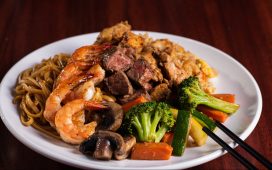Table Of Contents
To understand the different kinds of injuries and the cure, you first need to know what a spinal cord is. The spinal cord or the “backbone” is the chief source of communication between the body and the brain. In other words, it connects the brain with the rest of the body. It is why spinal cord injuries disrupt information between the brain and other parts of the body.
To understand better what a spinal cord is and its purpose, you may compare it to the internet. It is like the internet of nerve signals.
Understanding your Spinal Cord Injury
Now that you are familiar with what a spinal cord exactly is, we can talk about the two kinds of spinal cord injuries. A Spinal Cord Injury (SCI) is complete or partial damage to the spine, causing total or partial paralysis. What makes an SCI so traumatizing is that it may happen to anyone at any age, and it will severely affect the person’s lifestyle. Damage to the spinal cord rarely heals because the injured nerve cells fail to regenerate. It can be a life-changing injury. It estimates that there are approximately 17,700 SCI cases each year and about 450,000 people suffering from SCI in the United States.
Incomplete SCI
An incomplete injury means that the ability of the spinal cord to convey messages to or from the brain is not entirely lost.
Complete SCI
A complete injury indicates the total loss of sensory and motor function below the affected area.
1. Tetraplegia/ Quadriplegia
Paralysis of both the arms and legs refers to as tetraplegia, also known as Quadriplegia. In some cases, it may also affect parts of the chest, abdomen, and back. The most common form of SCI with 47% of cases is incomplete tetraplegia, while the least common is complete tetraplegia.
2. Paraplegia/ Diplegia
Paralysis of just the legs is known as paraplegia. In this type of paralysis, a person may be unable to voluntarily move their legs, feet, and sometimes their abdomen.
3. Monoplegia
It is the type of paralysis that affects only one arm or one leg, making it the most common kind of insensibility.
4. Hemiplegia
Paralysis in which one arm and one leg on the same side of your body is affected.
There are four major regions of the spine:
- Cervical
- Thoracic
- Lumbar
- Sacrum or sacral
The effects of injuries to each of these areas are different.
- If the cervical quarter is damaged, it can be life-threatening. Damage to the cervical area can affect the head and neck region above the shoulders that may also cause difficulty in breathing. This type of injury leads to tetraplegia.
- Damage to the thoracic spine can typically affect the arms, legs, mid-body. It can affect an individual’s ability to breathe and impact blood pressure. This type of injury usually results in paraplegia.
- Damage to the lumbar spine can bring about loss of function in the hips the legs and having little or no voluntary control of their bowel or bladder. (Paraplegia).
- Damage to the sacral spinal cord impacts the hips, back of the thighs, and pelvic organs as it is responsible for controlling the signals of these respective parts. The sacral is the fused part of the spine. People are most likely able to walk with this level of spinal cord injury.
Causes and symptoms
The most common cause of spinal cord injuries is trauma. Almost half of the injuries are caused by car accidents, while the other reasons may be:
- Fall from height.
- A fractured backbone injury caused by sports like football, rugby, etc.
- Infections of the spinal cord, for example, due to polio.
- Tumor in the spinal cord.
- Medical conditions such as scoliosis and osteoporosis affect the spine and a person’s general health.
- Ischemia, which is when a spinal cord tissue dies due to a lack of blood flow.
- Lifting heavyweights.
Spinal cord injuries are most common in the cervical and lumbar regions. The signs of a spinal cord injury vary depending on where the cord is damaged and whether it is a total or partial injury.
- You can experience pain, weakness, numbness, and incoordination in any part of your body.
- In your hands, fingers, or feet, you experience tingling or a loss of sensation.
- Burning sensation and breathing problems.
- Urinary incontinence and loss of bowel control.
- Excess consumption of alcohol.
What can make your symptoms worse? When should you visit a doctor?
Anyone who sustains bad head or neck injuries should seek medical attention from a doctor or chiropractor Melbourne right away. Unless proven otherwise, it’s safer to believe that trauma victims have a spinal injury because a severe spinal injury isn’t always distinct right away. If it is unnoticed, it could lead to a more severe complication.
Best foods for spinal cord injury
A healthy diet can immensely contribute to your recovery from any injury or sickness. If you’re looking for foods that reduce back pain and help in spinal cord injury treatment, you should make the following nutrition a part of your life:
- Carrots, beets, sweet potatoes
- Fruits, for example, berries, grapes, cherries, pomegranate, and watermelon.
- Dark leafy greens like spinach, kale, and broccoli, are packed with essential nutrients.
- Nuts
- Fish
- Boiled chicken
- Also, drink plenty of water. Drink healthy herbal teas and true teas (green, oolong, and white).
According to science, olive oil and green tea, in addition to the above-mentioned healthy foods, helps minimize inflammation in bones and control back pain and stiffness.
Another way to avoid back pain and strengthen acute spine injury is by making sure you’re getting the right amount of calcium along with vitamin D. Supplements are advisable for the consumption of these vitamins. Dietary supplements lower your risk of health problems such as osteoporosis or arthritis. Calcium contributes to bone mass, helping you avoid conditions like osteoporosis in old age.
Foods to avoid:
- Avoid vegetables that may cause inflammation, such as tomatoes, pepper, and eggplant.
- Avoid fast foods and saturated fats. These include white bread, rice, red meat, soft drinks, and fried food.
- Stay away from caffeine and alcohol.
Diagnosis
- X-Ray: An x-ray examines the condition of the vertebrae. It gives the doctor an idea of whether or not the spine misaligns in any way.
- MRI: An MRI or CT scan will help your doctor pinpoint which tissue, muscle, or tendons in your back are inflamed, weakened, or causing pain.
Other treatment options
Even though SCI has no cure yet, however in some critical conditions, you should take a doctor’s help for physical treatment to boost recovery.
- In many cases, surgery at https://www.vbjs.com.au/ is an option. There are two goals of surgery:
- The first goal is to relieve any pressure on the spinal cord. This method includes removing fractured vertebral fragments that are compressing the spine.
- The second goal of surgery is to stabilize the spine.
- Neck specialists use methods to immobilize your neck to prevent further spinal cord damage.
- While you’re in the early stages of recovery, physiotherapy is the solution for maintaining and strengthening existing muscle function.
- Prescribed medications to manage some of the effects of spinal cord injury
- Experimental treatments include leukopaks and stem cell treatments that may repair spinal cord injuries. Visit to learn more about leukopaks here.
- Technology allows paralyzed people to regain movement in their limbs with the help of electrical transplants.
Final thoughts
The spinal cord is not one unified cord but a bundle of nerves that sending and receiving a large number of signals from all over the body to the brain. It allows you to feel any sensation in your body and move your arms and legs on command. Therefore, you must take good care of it and take spinal cord injury treatment seriously.






